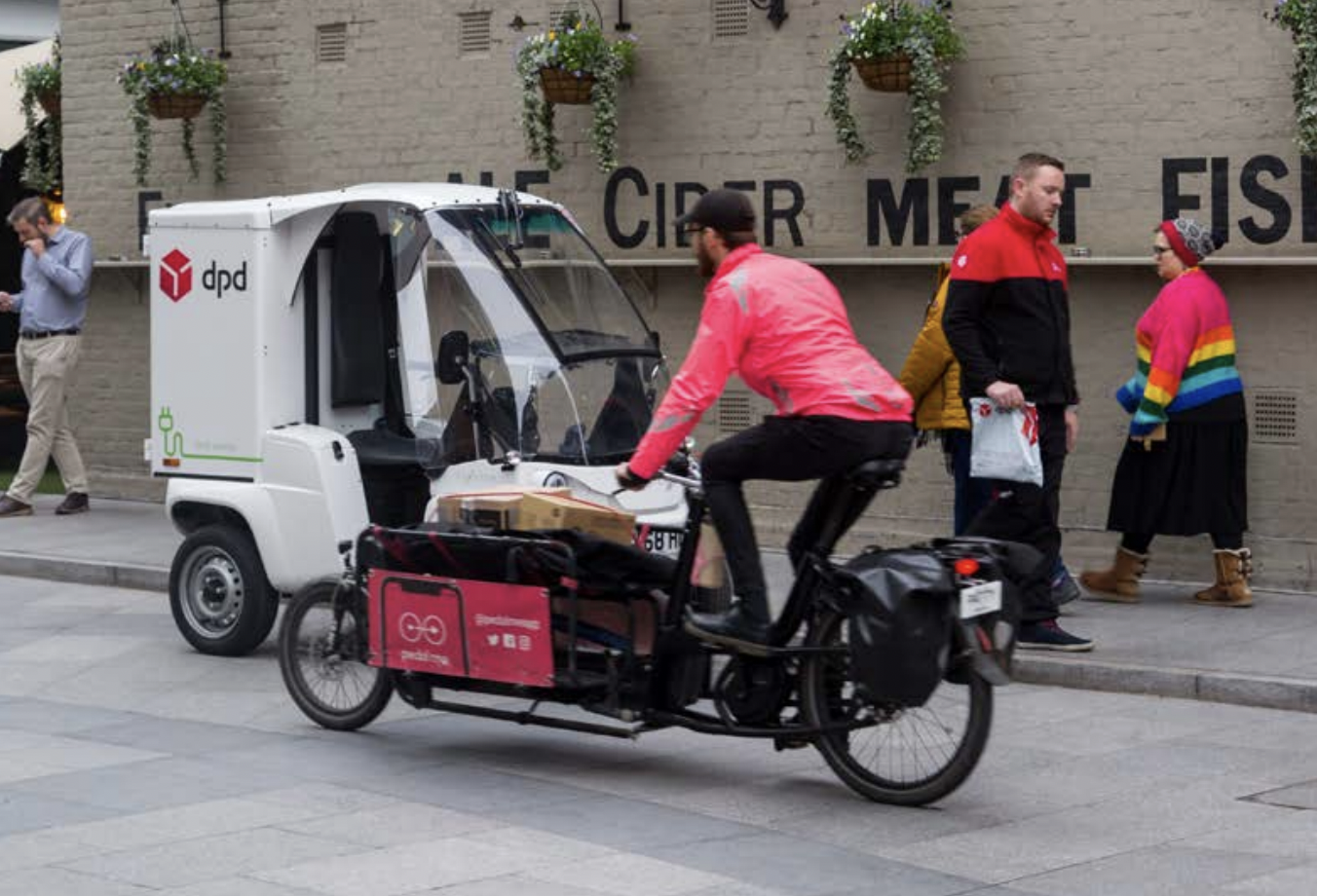Transport for London (TfL) has unveiled a new plan to work with the boroughs, businesses and the freight and servicing industry to transform how deliveries and servicing trips are made in the capital by promoting the growth of cargo bikes.
TfL said the safe, clean and efficient functioning of freight in London is vitally important to the economy and a healthier and more sustainable city for all Londoners. The use of cargo bikes for freight and servicing trips is becoming more widespread, with major businesses including Amazon and DHL using them for deliveries because they are quicker, cheaper and greener.
In London, 90% of all goods are transported by road and around half of the value of household expenditure in London relies on freight. Road freight is a major source of nitrogen dioxide emissions, a key contributor to London’s toxic air. Cargo bikes offer a much cleaner way to deliver freight and services and deliver considerable air pollution savings, contributing to healthier and safer streets and enabling better use of urban space.
TfL estimates that cargo bikes could replace up to four per cent of van kilometres by 2030. Central London is expected to see the highest growth and could replace up to 17% of van kilometres by 2030. It is estimated that the carbon savings resulting from cargo bike growth across Greater London will be up to 30,000 tonnes of CO2 a year by 2030.
Cargo bikes also present a lower risk to people walking and cycling than vans and heavy goods vehicles (HGVs), helping to make London’s streets safer and more attractive for people using public transport, walking and cycling.
The plan, launched on Friday 31 March at the National Cargo Bike Summit in central London, set out actions to promote cargo bike use and address barriers that inhibit or prevent a shift from vans to cargo bikes. Key actions within the plan include:
- Developing a London safety standard for cargo bikes that adopts best practice, publishing guidance for both riders and operators
- Exploring opportunities to provide space, such as micro-hubs and parking to support last mile cargo bike operations
- Monitoring where key cargo bike routes are across the city to identify usage patterns and project future growth
- Using procurement policy to support further cargo bike uptake
- Ensuring adequate and suitable capacity for cargo bikes when designing future TfL cycling schemes
- Promoting cargo bikes when planning TfL, or supporting borough schemes – including Low Traffic Neighbourhoods and borough-led vehicle emissions-based schemes
- Providing businesses with the tools and information they need to feel able to make the switch to cargo bikes
Christina Calderato, TfL’s director of strategy and policy, said: “Freight and servicing are the lifeblood of London’s economy but also contribute to air pollution, carbon emissions and traffic congestion. We are determined to provide a green, healthy and sustainable future for all Londoners and cargo bikes can play a vital role in cutting carbon emissions, air pollution and road danger. We will continue to work closely with our industry partners, businesses and boroughs across the capital to make our vision for cleaner and safer freight a reality.”









